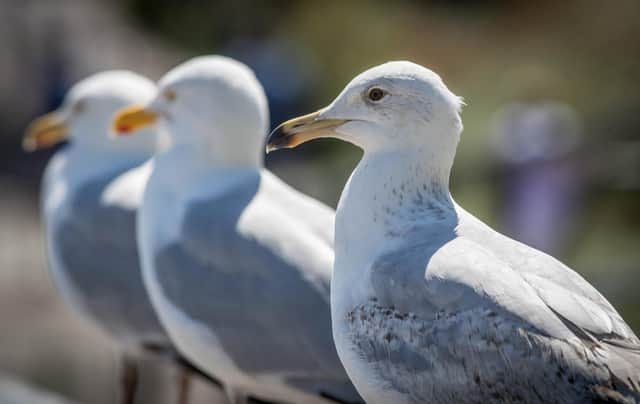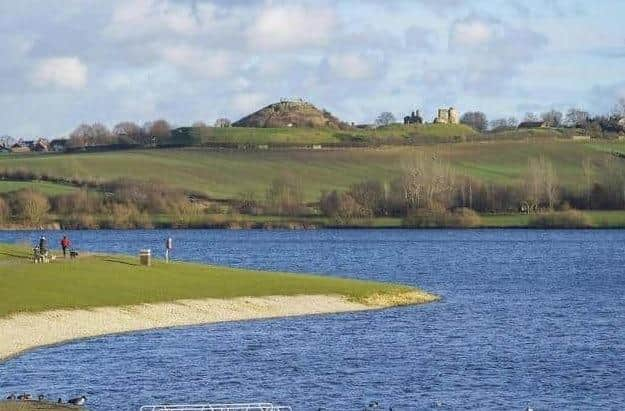Warning to public after confirmed cases of bird flu at Wakefield parks


Last month, there were two confirmed cases found in wild birds, a sparrow hawk collected from Altofts and a herring gull at Pugneys.
Wakefield Council is now taking action to inform people on what they can do to help stop the spread of bird flu and reduce the risks to themselves.
Advertisement
Hide AdAdvertisement
Hide AdIt’s urging visitors to its parks and open spaces to follow the latest national advice to keep to the footpath, keep dogs on leads, don’t feed ducks, geese and swans, don’t pick up or touch dead or sick wild birds and don’t touch wild bird feathers or surfaces contaminated with bird droppings.


Anglers and Pugneys Country Parks have also stopped selling bird food.
Bird flu, also known as avian influenza, is an infectious disease of birds, caused by the influenza A virus.
In very rare cases, certain strains of the virus, including the H5N1 virus currently circulating, have been known to cause illness in humans.
Advertisement
Hide AdAdvertisement
Hide AdNo cases have been found in domestic poultry in the district, but they are especially vulnerable, and the virus can rapidly cause epidemics in flocks.
If a single case is found in a poultry flock, then the whole flock would need to be culled, and additional biosecurity and surveillance measures introduced in the area.
The Government has already introduced a housing order which means that from November 7 keepers must not let their poultry and captive birds go outside.
Coun Jack Hemingway, Cabinet Member for Climate Change and Environment, said: “We understand that many people like to feed ducks, geese and swans, but doing so encourages the birds to gather together closely and this increases the chances that sick birds will pass on the virus.
Advertisement
Hide AdAdvertisement
Hide Ad“We are following closely the hygiene and biosecurity guidance being issued by the Department for Environment, Food and Rural Affairs and the Animal and Plant Health Agency.
“I am sure that, like us, people want to do what they can to help protect our wildlife and poultry flocks and I thank them for their cooperation.”
Dead wild waterfowl, such as swans, ducks and geese and other birds, should be reported to Defra’s helpline on 03459 335577.
Anyone on a council-managed site with a visitor centre or café should speak to a member of staff.
Advertisement
Hide AdAdvertisement
Hide AdIn addition, the council has written to the poultry keepers it is aware of, informing them of the legal requirement to apply the biosecurity measures put in place by Defra.Although there is no legal requirement to register poultry flocks with less than 50 birds, the council is encouraging all poultry keepers to voluntarily register their flocks so they can be provided with up-to-date information and advice – Voluntary Poultry Registration Form
The UK Health Security Agency has said the risk to the general public’s health is very low and the Food Standards Agency has said that on the basis of current scientific evidence, avian influenza poses a very low food safety risk for UK consumers. Properly cooked poultry and poultry products are safe to eat.
The symptoms of avian flu in humans vary considerably. Most infections take the form of a flu-like illness. Other symptoms can include conjunctivitis.
More information on avian flu can be found here.